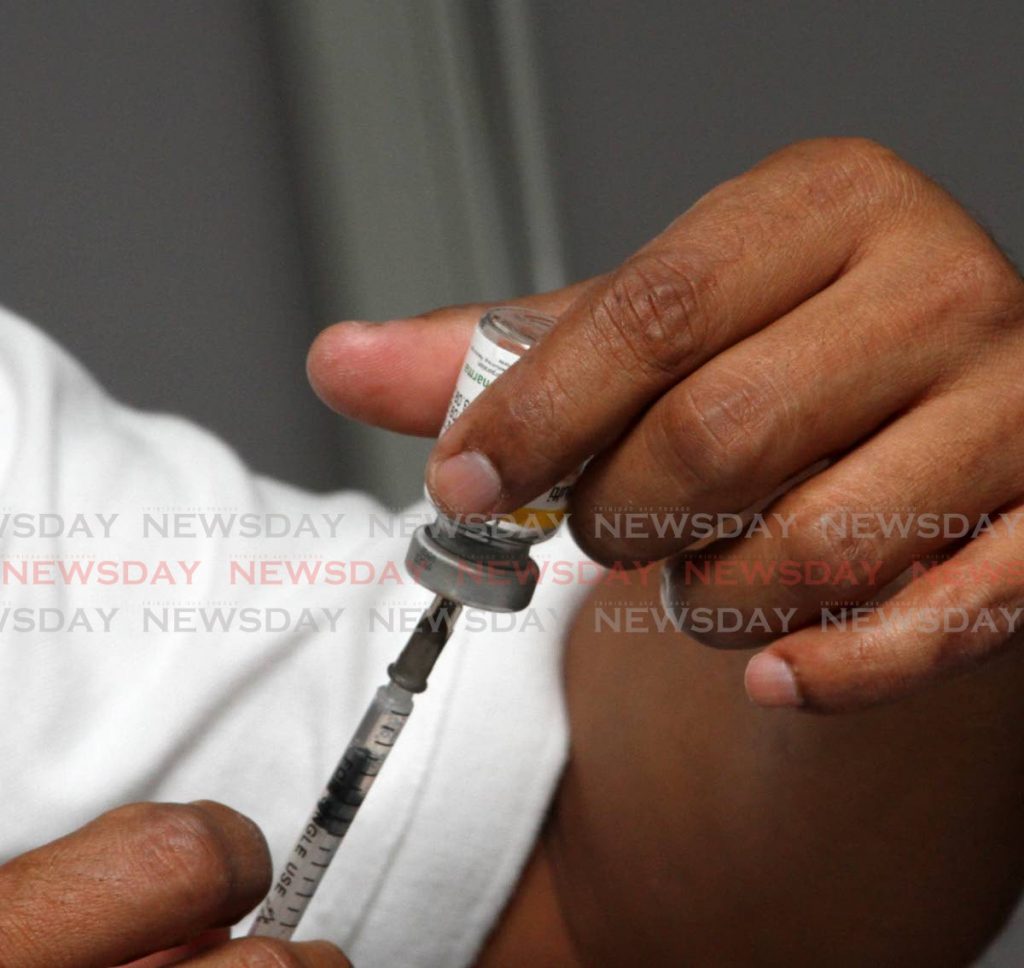Trinidad and Tobago must adopt 'first doses first' vaccine policy

kmmpub@gmail.com
The government and private health practitioners must commit to a policy of giving the first dose of the vaccine to as many people as possible – until 90 per cent of the population is vaccinated – before the second booster dose starts to be given out.
One of the covid19 vaccines currently available, the Moderna vaccine, is administered in two doses: a prime and a booster.
The first dose is what matters. As Dr Michael Mina of the Harvard Chan School of Public Health has written on First Doses First in the New York Times: “Moderna reported the initial dose to be 92.1 per cent efficacious in preventing covid19 starting two weeks after the initial shot, when the immune system effects from the vaccine kick in, before the second injection on the 28th day.”
The United States and the United Kingdom have already proceeded with “first doses first,” with the overwhelming support of health experts and political leaders.
We must do the same.
Consider that we have a population of 1.36 million, and we need 90 per cent vaccinated to get to herd immunity. If we give out all the doses received as “prime” doses in the first months, we will double the number of people vaccinated and can do the booster doses “more or less at leisure,” as we will have moved closer to herd immunity (which is 1.22 million vaccinated people).
If, however, we wait and hold back the booster doses “in reserve” in order to mildly increase the short-term efficacy of the vaccine for that initial vaccinated group, then we will dramatically delay the time until we reach herd immunity. This will drastically increase the risk for everyone else who isn’t yet vaccinated.
That’s why a group of global public health and political leaders, including the US Food and Drug Administration, officials from the US’ Operation Warp Speed (the government vaccine programme), the British Joint Committee on Vaccination and former British prime minister Tony Blair, are strongly calling on other countries to roll out First Doses First worldwide.
Despite the government’s border-control efforts, it is only a matter of time before the by far more infectious new strains hit Trinidad and Tobago, in which case even the strictest of lockdowns will barely be able to prevent a rapid rise in cases, overwhelming our health system.
In order to put the definitive lid on the pandemic’s spread, the government must immediately commit to a "first doses first" policy.
Now some might caution that "there isn’t enough data yet" and giving one dose might be risky to more vulnerable populations such as the elderly.
That view is not only wrong: it is deadly.
We already have data from Pfizer demonstrating a huge reduction in infections before patients received the second dose. Considered alongside the huge amount of data from previous vaccines, this has been more than sufficient for British and American public health experts to make the calculation that a first dose is more than sufficient to provide protection and spread, until enough doses are available to start providing booster shots.
It is already becoming clear that the timing between doses does not matter much. As many public health experts, including economist Tyler Cowen, have noted: “the 21-28-day interval between doses in the trial was chosen to accelerate the completion of the trial, not because it has magical medical properties.”
More data is already arriving to bolster a case that is already good enough even for the notoriously slow and risk-averse US Food and Drug Administration.
Effective public health means being straightforward about expected trade-offs. This is simple maths, as George Mason professor Alexander Tabarrok has elegantly outlined. As an example, assume we had a vaccine that was 80 per cent efficacious with just one dose, and 95 per cent efficacious with two doses. Two multiplied by 80 per cent is more than one multiplied 95 per cent.
That is exactly the dynamic we have with the covid19 vaccines that have been released, even though the efficacy numbers vary between vaccines. The real numbers are of course different, but when epidemiologists have plugged this into their models, as Prof Tabarrok pointed out, they received results in the same direction.
The government’s pandemic response team has already established itself as one of the best in the world at containing the virus. Ensuring that the broadest section of our population is protected from the virus will seal their already strong reputation. First doses first!
Kiran Mathur Mohammed is a social entrepreneur, economist and businessman. He is a former banker and a graduate of the University of Edinburgh.


Comments
"Trinidad and Tobago must adopt ‘first doses first’ vaccine policy"